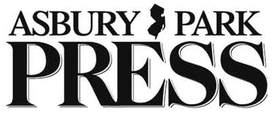|
COMMENTARY Why the first person I hired was a bookkeeper Chris Griffiths
Special to The Globe and Mail Published Tuesday, Nov. 05 2013, 5:00 AM EST Last updated Wednesday, Nov. 06 2013, 12:50 PM EST When my first small business was in its infancy, I was struggling to make ends meet. Marketing my new business and finding customers who would trust their money to a startup wasn’t easy. The bills were piling up. I started my business as a one-man show, and as I finally started getting some momentum, my first instinct was to hire a bookkeeper. This isn’t typical. Not at all. But it worked for me, and here’s why: Most entrepreneurs are happy to leave the day to day bookkeeping to an outside firm. Outsourcing this work allows them to focus on their natural skill sets and leave the tedious responsibility of managing invoices and receipts to someone else. Early on, I couldn’t even afford an outside bookkeeping service, so I did it all myself. While it was time consuming and non-revenue generating, I soon learned the value of having up-to- the-minute financial data on how my business was performing. I was addicted to this information; the sales, margins, overheads and expenses were always in front of me in black and white. These numbers didn’t lie and they gave me a sober view on how I was managing my cash flow and what was driving the profit in my business. When it came time for me to break free from those bookkeeping tasks, I already knew how certain transactions should be allocated and was accustomed to seeing it all in real time. Switching to an outside service would mean that I’d receive monthly statements, at best. In my opinion, that information was too old to act upon in a meaningful way, so I hired a part-time bookkeeper to come into the office several hours a week. This allowed me to influence how the books were organized, and meant my statements were only a few days old at any given time. Nowadays, I rarely encounter owners who run their bookkeeping with the same level of detail with which they run the rest of their business. They’ll often get attendance records, production reports, new orders and receivable information every day, while their financials are done once a year, submitted three to six months after year end. I think they’re missing out. As a matter of fact, I know they’re missing out because, when their margins and expenses are well documented and presented, they inevitably change their priorities. When I talk to small business owners about the state of their finances, they typically mention about sales and cash flow. Rarely they know where their margins or expenses are relative to last year or this years’ budget – if they’ve budgeted at all. Furthermore, when I ask entrepreneurs about the current state of their books, they often answer in the future tense. They’ll often mention a big project coming up, the seasonality of their operation or a large receivable coming due. That’s fine, don’t get me wrong. But it speaks to their instincts about what’s about to happen, not how worthwhile or successful their past efforts have been. While a big project or busy season or large receivable are all meaningful metrics, the truth is that it’s rarely one thing that contributes to a small business’ profitability. It’s normally a hundred little things. Where’s the best place to find the financial impact of a hundred little opportunities in your business? One place worth looking, for sure, is in your financial statements. So while I was tempted to make my first hire a salesperson, or service technician or production worker, instead I chose a bookkeeper. With real-time profit and loss statements available to me, I was able to make hundreds of intelligent decisions and changes and improvements, all of which contributed to my success. I know that spending time with your accountant and bookkeeper is something you normally do out of necessity. However, you may benefit from investing more of your focus into those financial statements, more regularly. You’ll see the positive influence it will have on how you run your business every day. # To read this article on the web, click here. Chris Griffiths is the Toronto-based director of fine tune consulting, a boutique management consulting practice. Over the past 20 years, he has started or acquired and exited seven businesses.
0 Comments
GETTING AHEAD Organizing your money
THE ASSOCIATED PRESS
NEW YORK — Income tax ling season is often a trying time for small-business owners, but the Internal Revenue Code is usually not the culprit — tax professionals say it's procrastination and poor record-keeping that causes most of the problems. The owners who are frantic at tax time are often ones with very small companies and few or no employees, so they do everything themselves. They may have the best of intentions, but they just don't get around to inputting income and expense data into the accounting programs in their PCs because they're so busy working with customers or coming up with new products or services. Or, they never bother to learn tax and accounting basics that are critical for keeping their companies healthy. There can be painful consequences when owners don't maintain good records and don't have a rudimentary knowledge of tax law. At the very least, they can miss out on important deductions or tax credits, and end up paying the government more than they need to. Much worse is the very real possibility that their neglect leaves them without cash on hand to pay their tax bills. Computer programs make it easier for an owner to keep a good set of books, but they do require some vigilance. "They have the electronic thing, but they don't use it enough. They don't keep it up to date," said Stephen Fishman, an attorney in San Francisco who writes books about small business and tax law. "You have to input the nancial information, it won't do it itself." For the time-pressed or disorganized owner, the solution is to get some help. "Just outsource the bookkeeping function," said Jerey Berdahl, a certied public accountant with Berdahl & Co. in Center Valley, Pa. "There are a lot of competent bookkeepers out there that you can trust." Many business owners will shy away from the expense of hiring a bookkeeper or bookkeeping service, although as Berdahl pointed out, it's much cheaper than hiring an accountant. And, if a company's books are in chaos or the owner nds there isn't enough cash to pay the government, the business could be losing more money than it would cost to get some outside help. Berdahl also suggested an owner hire an outside rm to customize a standard accounting program so it's more suited to a particular small business. The cost shouldn't be exorbitant, probably several hundred dollars. Owners also need to have some knowledge of tax law — not necessarily as much as a CPA knows, but enough so they don't end up with very big and very unpleasant surprises. "Just understanding how the tax law works is a big issue for a lot of people," said Joseph Maloney, a certied public accountant with Maloney Reed Scarpitti & Co. LLP in Erie, Pa. He noted, for example, that many owners are surprised to learn that although they haven't yet been paid for work done or products delivered, they still owe taxes on the income they've earned. In other words, they're being taxed on their receivables, and if they haven't set aside money for that liability, they could be scrambling for cash to pay the government. Another example from Fishman: "If you're self-employed and you pay estimated tax, if you haven't paid enough you could have a substantial tax bill April 15." Disorganization and poorly kept books are frequently accompanied by poor cash ow and in turn, not enough money for that tax bill. That's a particularly unnerving proposition given the dicult lending environment right now. |
Exciting Things
We're happy to share our news and other important information Archives
January 2021
Categories
All
People We FollowContent and imagery on this site are the intellectual property of AFS-NJ, LLC.
All rights reserved. |







 RSS Feed
RSS Feed